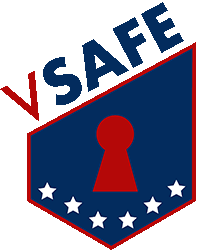Learn. Detect. Protect.
Find resources about fraud targeting you. Know the signs of a scam, get advice about what to do, and learn how to report scams and identity theft.
Report suspected fraud!
Protect yourself and others; call the VSAFE Fraud Hotline at 833-38V-SAFE (8-7233).
Learn about military and Veteran benefits scams and avoid scammers that create false service records, claim benefits for fake dependents, and submit false disability claims.
Keep your identity safe and learn what to do if someone steals your personal information like Social Security numbers, credit card details, or bank account information.
Protect yourself from scammers who pretend to be organizations, government officials, charities, military personnel, or someone you trust to get your personal information.
Prevent, report, and learn about scams including fraud awareness training, hotlines, online security guides, and legal aid to recognize and combat fraudulent activities.
Learn about scams to avoid when you’re buying, financing, or maintaining your car, including false advertising, hidden add-on fees, misleading loan terms, and more.
Learn your rights when planning a funeral and avoid fraud, including adding hidden or unnecessary charges, misrepresenting legal requirements, and failing to provide promised services.
Spot and avoid fraud by individuals or institutions at any level of schooling including untrue claims about accreditation, job placement, costs, and public funds in the form of student loans, Pell Grants, GI Bill programs, and research grants.
Learn about fake job offers, upfront payment requests for training or equipment, and identity theft through fraudulent applications.
Find out about predatory tricks to watch out for when starting that new business or filing a patent, such as fake trademark brokers, fraudulent patent filing schemes, impersonating billing, and misleading application processes
Recognize the signs of fake investment schemes, fraudulent loans, phishing for personal information, overcharging for services, and identity theft.
Spot and avoid scams related to health insurance, medical discount plans, and health products, including false advertising, fraudulent overcharging, falsifying medical records, and selling counterfeit medications.
Recognize scams involving fake rental listings, foreclosure relief fraud, bait-and-switch tactics, and phishing for personal information.
Learn how to spot and avoid scammers on dating sites and social media who build trust, fabricate emergencies, and request money.









